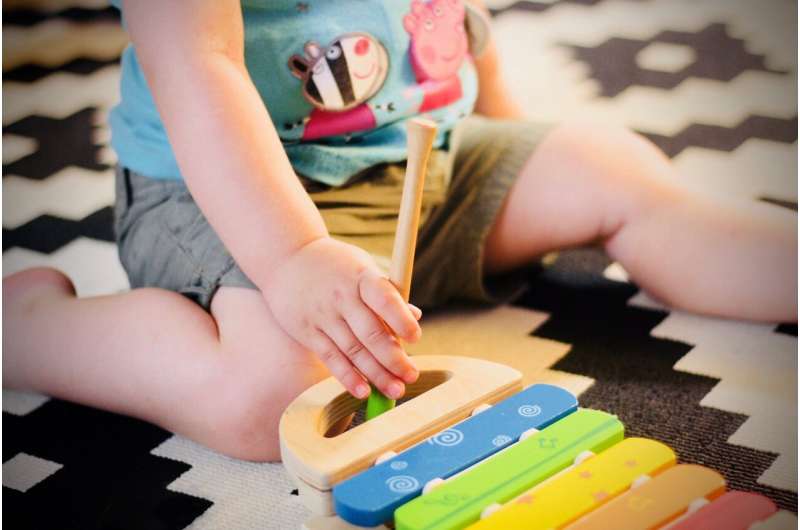
Previous research shows that conversational turns (interactive conversations) between parents and children are important for a child’s long-term language development and academic achievement and that these conversations can be enhanced via parent-coaching language interventions. The neural networks responsible for language develop rapidly even before a child can talk, making these interactive conversations especially important during infancy.
Music is an engaging and social experience between parents and children that is often part of daily routines during infancy. Emerging literature also documents links between music experiences and child language outcomes. Researchers in a new study, publsihed in Child Development, have explored whether participation in Music Together, a community-based music enrichment program, could foster these important language interactions between parents and young children.
Eighty-nine parent-child pairs were randomly assigned to either the Music Together (music) or play date (control) classes. Children were between 9 and 15 months old at baseline, primarily white (86.7%) and female (52%). The sample also consisted of primarily highly educated (college graduate or higher: 71.1 %), mid-upper income (greater than $50,000: 81.5%, white families (mother’s race: 86.7%).
The findings show that Music Together participants had a significantly greater increase in conversational turn measures and quality of parent verbalization post-intervention. Music enrichment programs may be a strategy to enhance parent-child language interactions during early childhood.
The Society for Research in Child Development (SRCD) had the opportunity to chat with author Dr. Amy R. Smith from Children’s Mercy Kansas City in Kansas City, Missouri and University of Kansas Medical Center in Kansas City, Kansas, United States of America about this important research and its implications.
What contributed to your interest in pursuing this particular research?
As a board-certified music therapist, I am particularly interested in how music benefits early development. I have seen firsthand how music interventions can enhance early language development and this research was an exciting opportunity to examine the impact of a commercially available music class on conversational turns, a critical aspect of the language environment.
Society for Research in Child Development

